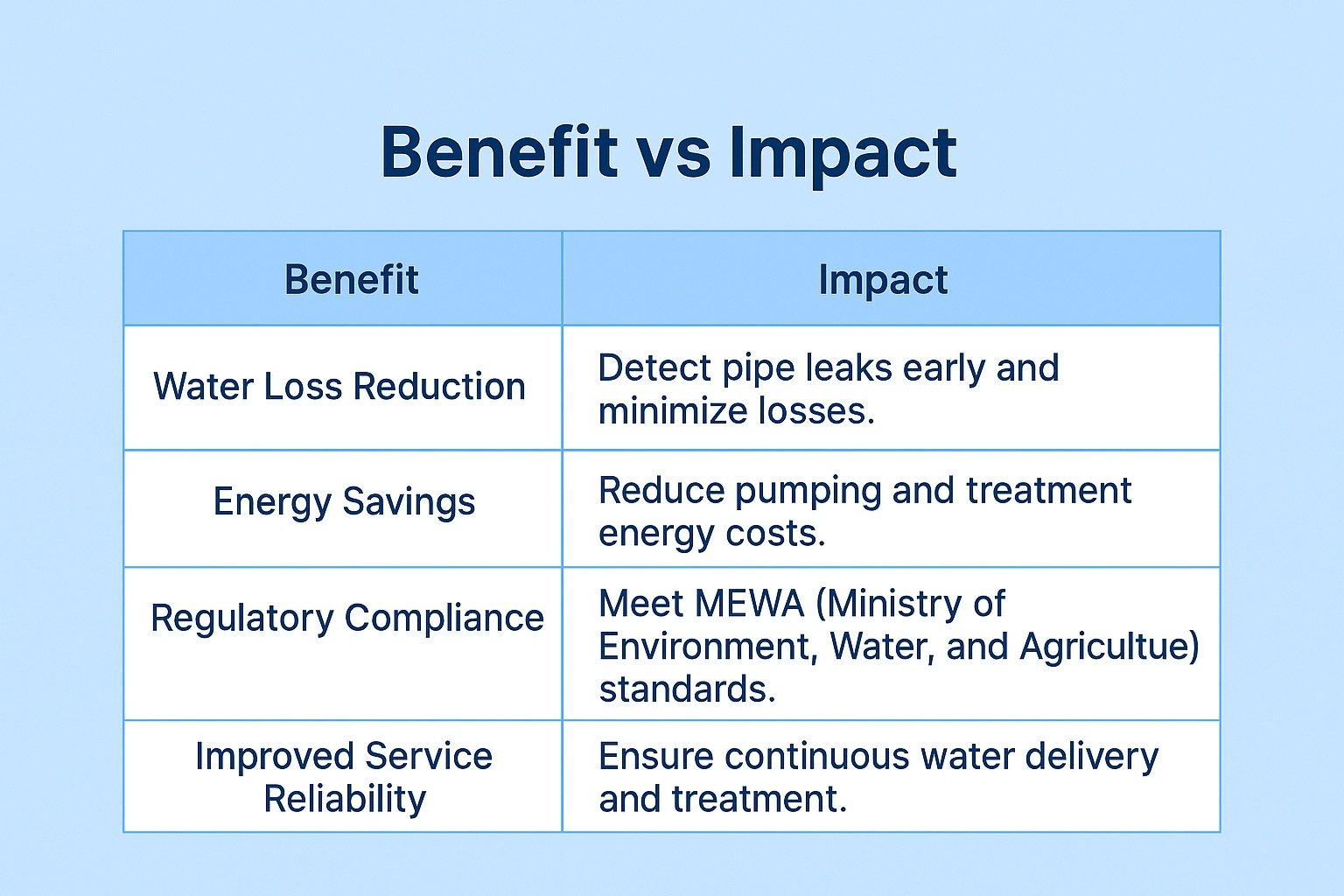Water scarcity and sustainable water management are top priorities in Saudi Arabia. With industrial growth and urban expansion, water and wastewater treatment plants must operate with maximum efficiency and reliability. SCADA (Supervisory Control and Data Acquisition) systems are essential tools that enable real-time monitoring, control, and optimization of water infrastructure across the Kingdom.
Challenges in Water & Wastewater Management:
- Extreme Water Demand:
High population growth and industrial activities increase water consumption. - Limited Freshwater Resources:
The Kingdom relies heavily on desalination and water recycling plants. - Energy Consumption:
Water treatment and pumping are energy-intensive processes that need optimization to reduce operational costs.
How SCADA Systems Address These Challenges:
- Real-Time Monitoring:
SCADA continuously tracks water flow, pressure, chemical levels, and equipment status. Operators receive instant data on critical system parameters. - Remote Control & Automation:
From a central control room, engineers can adjust pumps, valves, and chemical dosing systems without manual intervention, even across multiple locations. - Improved Energy Efficiency:
SCADA optimizes pump operation and load distribution, reducing energy waste in water transfer and treatment processes. - Preventive Maintenance:
Early detection of faults (e.g., pump vibration, pressure drops) allows scheduled maintenance, reducing emergency repairs and downtime. - Compliance & Reporting:
SCADA systems generate automated reports to ensure compliance with Saudi environmental regulations and international standards

Benefits of SCADA for Saudi Municipalities and Industries:

Case Study Example:
A municipal water authority in the Eastern Province implemented SCADA across its pumping stations and desalination units:
- 15% reduction in energy consumption.
- 20% decrease in water losses from undetected leaks.
- Improved customer service due to fewer water supply interruptions.
SCADA and Smart City Integration:
As Saudi cities adopt smart city technologies, SCADA systems are integrating with IoT sensors, cloud platforms, and AI analytics, paving the way for fully automated and self-optimizing water networks.
Challenges to Consider:
- Cybersecurity:
Water infrastructure is critical; SCADA networks must be secured against cyber threats. - System Scalability:
SCADA designs should allow future expansion as cities and industries grow. - Training Requirements:
Operators need specialized training to maximize SCADA system benefits.
Conclusion:
For Saudi Arabia’s water and wastewater sectors, SCADA systems are not just a luxury — they are essential for sustainability, cost efficiency, and service reliability. By adopting SCADA, municipalities and industries can ensure safe, efficient, and environmentally responsible water management.



